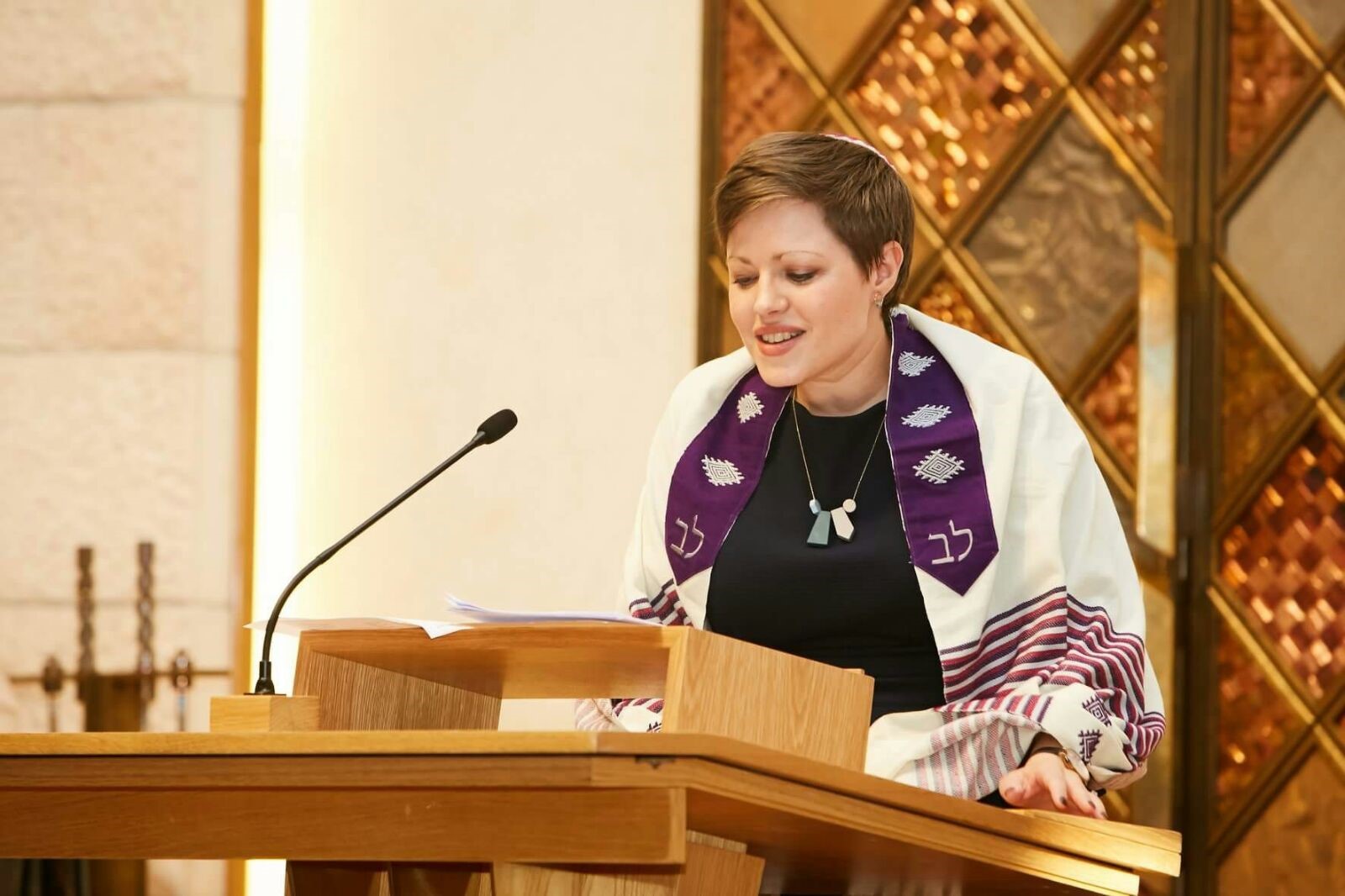Photo: Rabbi Robyn Ashworth-Steen
Article by: Kohenet Yael Tischler
Many people speak of transformative experiences in spiritual settings, but when Rabbi Robyn Ashworth-Steen was at last December’s Hamakom silent retreat, she recounted the following revelation:
We had just had a session on mindful eating from Rabbi Sheila Weinberg. I sat down at lunch and was very zen and practising mindful eating. I was eating custard, imagining all the people and processes involved to bring this food to me in that moment. Along the way, I thought of the cow whose milk I was eating, and given the knowledge I had about dairy farming, I could no longer ignore the ethics around dairy farming, or that cow. I put my spoon down and was vegan from that moment on.
Now, when people ask Rabbi Robyn if she keeps kosher, she replies, simply, “Yes, I’m vegan.”
Rabbi Robyn is one of many Jewish clergy across the denominational spectrum and beyond who have decided to follow a vegan path. Over the past few months, I’ve had the pleasure of speaking to rabbis, kohanot (Hebrew priestesses), professional service leaders, and even a sofer (Hebrew scribe) about their journeys towards veganism. From health reasons to environmental reasons, concerns for animal and human welfare to Jewish theology, each of them had their own compelling case for turning to a plant-based diet. In this article, it’s my privilege to share their stories, their reflections and their compelling cases for a very Jewish veganism.
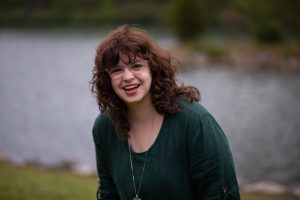
For many vegan Jewish clergy, the change was swift, a moment of revelation. For Eliana Light, a professional Jewish service leader and songwriter, she recalled her decision to become vegetarian at age 11. “I was at Jewish summer camp and every Saturday there would be cold cuts for lunch. One random Saturday, I get in line, look at the spread and… all of the desire to eat meat left my body….I just felt… so repulsed by it… I stopped that day.” Later, her decision to go completely vegan was inspired by the book Eat to live by Dr. Joel Fuhrman.
Rabbi Reuven Greenvald also had what he describes as an “epiphany moment”: “I was preparing to cook a whole chicken… and I saw it as being from a living thing that senses pain.” Inspired by many friends who had already become vegan and who were “creating such tasty and nutritious food,” as well as his learnings about how “the meat industry is negatively impacting our planet’s economy,” Rabbi Reuven took the plunge. You can see him pictured here with his very own homemade plant-based pizza.
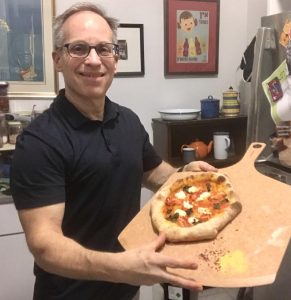
But for other Jewish clergy, it was more of a process. Kohenet Sarah Chandler reflected that it took her a long time to join the vegan ranks:
I knew a couple of vegans in college and I didn’t really get it… They were these two guys who were roommates and had rescue bunnies… (the bunnies) were cute but they used a litter box and hopped around the apartment, and I was just like, “Oh, being vegan means you’re nuts!… Not only do you not eat animals, but you also have bunnies running around your house!”
When Kohenet Sarah was in her 20’s, she worked at Teva, teaching about the intersection between Judaism and environmentalism. She says, “It was the first time that I learned about this idea that you would eat fewer animals for the planet, for environmental reasons.” She became aware of issues around deforestation and resource use. “The amount of energy and food and water and fertiliser and everything you need to do to grow enough calories for a bowl of pasta or a veggie burger vs. to grow enough calories for a cow,” she said, articulating that most certainly the latter will require far more resources. She spent time as a vegetarian, a meat reductionist and a dairy reductionist before turning to a vegan diet. It was a podcast called Vegetarian food for thought that gave her the final push. The podcast, which she discovered whilst exercising at the gym, was actually vegan. She joked that the podcast had a “brainwashing” effect, “You hear the same phrases over and over again and you start thinking about them all the time,” she said.
For Rabbi Robyn Fryer Bodzin, veganism actually evolved unexpectedly out of her Jewish practice. “I lived in New York in a small house, with an even smaller kitchen and it was one of those years where all of the yontifs (Jewish holidays) were Thursday/Fridays, and so it was like a month of 3 day yontifs.” According to a traditional observance of Jewish law, one can’t do certain categories of work on Shabbat and holidays (which Rabbi Fryer Bodzin has referred to as yontifs). This means that when the autumn Jewish festivals of Rosh Hashanah, Yom Kippur and Sukkot, which happen around the same time, fall next to a Shabbat, there is nearly a month where there are multiple three-day periods where work isn’t possible. “My kitchen was so small, to flip from milchig (milk dishes) to fleishig (meat dishes) was too much of an effort… So we just ate meat and fish for a month (in order to keep kosher without having to change around our kitchen).” Rabbi Fryer Bodzin’s voice turned to disgust when she said this: “I felt sick. Sick. So we decided that we would try going vegetarian until American Thanksgiving… Then, we realised that that wouldn’t be healthy, because we would eat cheese and ice cream the whole time, so we thought, let’s try going vegan, why not?” During this period of veganism, Rabbi Fryer Bodzin began reading. One of the most transformative books for her was The China Study by Dr. T. Colin Campbell and Thomas M. Campbell II. The book argues, based on research done in small villages in China where residents eat only plant-based foods, that a plant-based diet is the best way to avoid cancer, diabetes, heart disease and obesity, as well as to age healthily. “It changed my life,” she said. “That was it. I was convinced.”
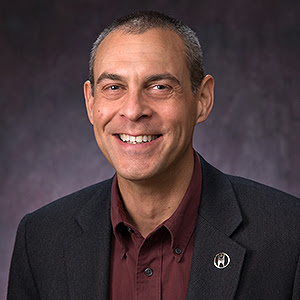
Rabbi Binyamin Biber’s journey also happened in stages. When he was a teenager growing up in Des Moines, Iowa, he studied Jewish archaeology with an orthodox rabbi, who had previously been a shochet (a person certified to kill animals in a kosher way). “He stopped being a shochet,” recalled Rabbi Binyamin, “because he found that it was desensitising himself to the suffering of animals.” At around the same time, he read a piece by Albert Einstein, exploring his own choice to become both a vegetarian and a conscientious objector. Einstein’s political thought, combined with Rabbi Binyamin’s experience with his Jewish archaeology teacher, caused him to go vegetarian. Years later, when he was living with his boyfriend in Seattle, Rabbi Binyamin got sick. This meant that his boyfriend, who was a vegan activist, was doing all of the cooking. As Rabbi Binyamin got better, he noticed the following: “I was a singer in the (punk) band (we were both in), so I had more lung capacity and clarity and better vocal register.” He is also a cyclist and a horn player (french horn and trumpet), both of which require great lung capacity, as well. There was an “immediate health impact,” says Rabbi Binyamin.
For many of the clergy I spoke to, there is a deep connection between their Judaism and their veganism. Rabbi Beth Kramer-Mazer spoke about three Jewish concepts that resonate with her vegan practice: shmirat haguf (guarding our bodies) – “to go out and do the work in the world, we need ourselves to be healthy;” bal tashchit (not destroying resources) – “we don’t own the earth, we are borrowing the earth;” and tzar ba’alei chayim (preventing animal suffering) – “there is dignity in all life and caring for other animals… They should be respected and they should be celebrated. I really feel like if they’re not OK, I’m not OK.”
Rabbi Binyamin Biber, referencing the concept of eco-kashrut, said: “being mindful of one’s own diet and practices, that’s very clearly a part of the core of Jewish culture.” Eliana Light added: “Kashrut (keeping kosher), like a lot of halakhah (Jewish law), is a mindfulness practice… Kashrut says you can’t just eat everything, what you consume matters… stop and think about it first.” Instead of checking for kosher symbols, Eliana makes sure to check how the products she buys were made. “Capitalism takes consumers very far away from the production of the things that…we use, on purpose. Because a lot of it, if we could actually get up close and personal, we’d be absolutely horrified.” Eliana sees her veganism as being tied up with food justice in general, and in making sure that she is consuming as ethically as possible.
Rabbi Robyn Ashworth-Steen agrees:
We know, within our tradition, that we care about animal welfare. We also care about finding holiness and sacredness in the everyday. We care about what we eat, where it has come from and what we do with it. Given the knowledge we have today, the modern world where mass production and capitalism are the bedrocks of our society, we have to reflect upon what kosher could mean today.
According to Rabbi Binyamin, Eliana and Rabbi Robyn, the answer is very clearly, “Vegan.”
Rabbi Aaron Goldstein referenced the Jewish teaching of “lo tuchal l’hitaleym”, which he translates as “do not remain indifferent” or “don’t ignore stuff.” He said: “There is a compelling, scientific and moral case relating to our (ab)use of the planet and all that is upon it, to satisfy our life(style). If we know we are causing damage, how can we ignore that fact?”
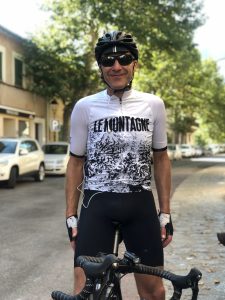
In a number of my conversations, the clergy I spoke to brought up the Garden of Eden, and how our existence there was an ideal state to which we must strive to return. Said Rabbi Rick Brody:
We have this presentation of an ideal as the Garden of Eden, in which we are told very clearly what foods are being given to us to eat… how G-d is expecting us to conduct ourselves with the rest of creation, and it’s very clear: it’s a vegan diet. It’s… the seed-yielding herbs and the seed-bearing fruits – and that’s it! Then we get this very clear narrative of a progression away from that ideal… We find ourselves over on the other side of the ideal and we’re trying to make this return back to our roots.
Said Rabbi Marc Soloway, “Eating meat was a concession to human craving, but not, in my view, an obligation.”
Some clergy, however, articulated that there is on occasion a disconnect between their veganism and their Judaism. Rabbi Robyn Fryer Bodzin told a story about how she was teaching on Facebook live about animal sacrifices, and the burnt offering in specific. “I said, ‘You know, I have two sets of values that are in conflict…This is part of history, this is where we come from, but I am just letting you know, it is hard for me to teach this. I am grateful that we don’t live in a time of animal sacrifices.’” Rabbi Marc Soloway’s reflections on animal sacrifices, however, reassure us that a meaningful Judaism is still possible, even if there are pieces of our past that are challenging: “Judaism evolved from a Temple-based religion with animal sacrifice and most contemporary Jews do not want to go back to that system. Beautiful authentic and joyful expressions of Jewish spirituality and practice can definitely be practiced with a nourishing plant-based diet!”
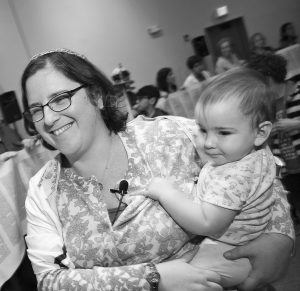
If the clergy I spoke to are any evidence, a very Jewish veganism is possible, and they are all living and breathing it in their own ways. I’ll leave us with Rabbi Ariann Weitzman’s reflection:
I am inspired by the Ramban‘s explanation of (the commandement),“You shall be holy.” He taught that there are things Torah technically permits, but we must find our own way to “be holy” within the strictures of what is permitted to us, knowing that Torah can’t explain every situation to us explicitly…We have greater capacity to act out of recognition of animals’ emotions now than ever, and to “be holy,” we must strive to act on that.
*
While I couldn’t include absolutely everything each vegan Jewish clergy person shared with me in the body of this article, here are some more inspiring quotes from my conversations:

“All this transformed me; I feel like a different person since becoming vegan. What started as a health journey, became a whole life shift…” –Rabbi Beth Kramer-Mazer
“None of our consumer decisions are 100% ethical… Three times a day, I actively feel I am making an ethical choice where I am connected to the Earth, where I am connected to G-d and that feels very, very meaningful.” – Kohenet Sarah Chandler
“I believe that we are all made in the image of G-d and we have to protect our bodies.
Judaism provides a lens through which to see all the issues that I mentioned: human health, animal welfare, the environment…I think there’s a very good Jewish argument to be made that the best Jewish diet is vegetarian, and is vegan.” –Rabbi Joel Pitkowsky
“It’s (the Jewish justification for veganism) in two words, if I can quote something from Nitzavim– u’vacharta bachayim – choose life…” – Neil Yerman, Sofer (Hebrew Scribe)
“Judaism calls on us to be the best version of ourselves…eating this way and thinking about where the food came from, eating locally, which I try to do…this is part of spiritual development, Jewish, but also universal… We are caretakers of the Earth.” –Rabbi Jo David
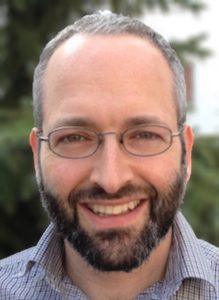
“Judaism asks us to make ethical choices in all of our behaviours, and ask as many questions as we can about the world around us and the experiences we have. When we study, every word, every letter, can hold a wealth of meaning and insight. In our daily lives, we are asked to say a blessing for all that we experience, and do our best to work to bring more compassion and justice into the world. This same level of focus and intention needs to be given to the food we eat, and with all of the ethical problems with eating animal products, it is clear that there can no longer be any justification for eating animals and we have no choice but to move towards a more vegan world. As Jews, we have never shied away from the difficult issues that confront us, and veganism now needs to be a larger part of the conversations about Jewish values and ethics. Once we look at the reality of animal agriculture and exploitation, we will see that veganism is the clearest path of tikkun olam and making a stronger, healthier world.”
–Rabbi Boris Donlin
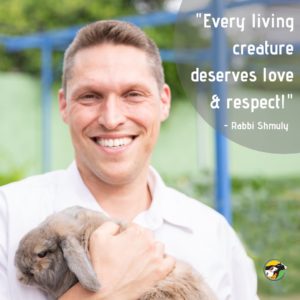
“I see obligations to respect and show compassion to others as at the heart of my commitment to Jewish practice, and I see veganism as one way to try to put some of those obligations into practice.” –Rabbi Dr. Geoffrey Claussen
“Judaism demands we work to reduce suffering in the world. Kashrut was designed to ultimately move us toward veganism. And the Jews are called upon to be a Light unto the Nations, pushing us to be at the forefront, standing with vulnerable populations.” –Rabbi Shmuly Yanklowitz

“I believe, at least for me, that we as human beings were actually meant to be vegan.” -Rabbi Sandra Lawson
“In the whole, and even being the cycling Rabbi, I have thrived on a vegan diet and hope in some microcosmic way the world will be slightly better off for it and G-d is smiling.” -Rabbi Aaron Goldstein
*
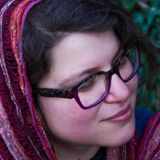 Kohenet Yael Tischler is a ritual-weaver, Jewish educator and song leader. She is the co-founder of Yelala, a constellation of work that celebrates Earth-centred, feminist Jewish spirituality and reclaims the practices of our women/femme and folk ancestors. She holds an MA in Writing for Young People from Bath Spa University, a BA in English Literature from Columbia University and a BA in Tanakh (Bible) from the Jewish Theological Seminary. She will begin her Rabbinical studies at Leo Baeck College in September 2020.
Kohenet Yael Tischler is a ritual-weaver, Jewish educator and song leader. She is the co-founder of Yelala, a constellation of work that celebrates Earth-centred, feminist Jewish spirituality and reclaims the practices of our women/femme and folk ancestors. She holds an MA in Writing for Young People from Bath Spa University, a BA in English Literature from Columbia University and a BA in Tanakh (Bible) from the Jewish Theological Seminary. She will begin her Rabbinical studies at Leo Baeck College in September 2020.












